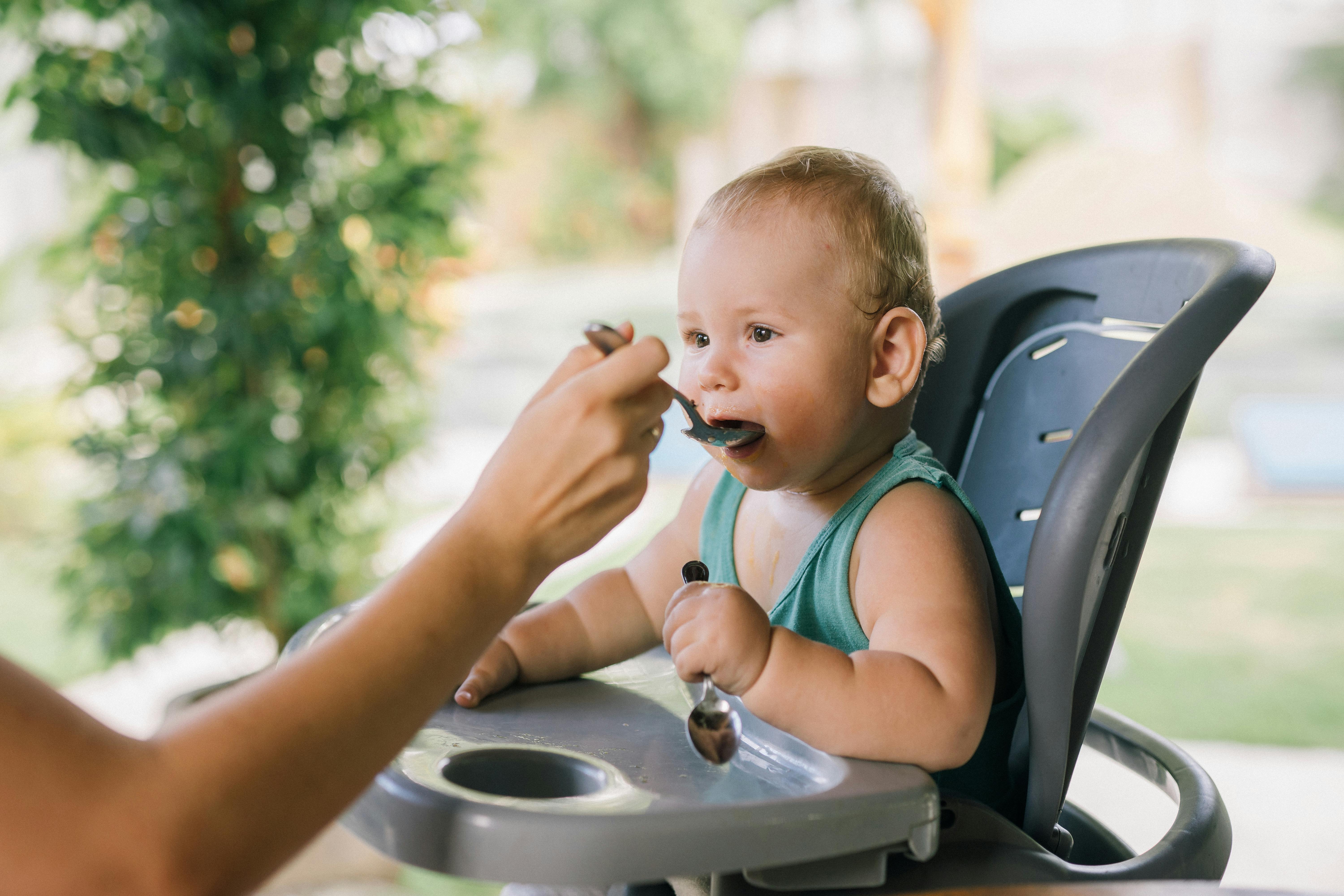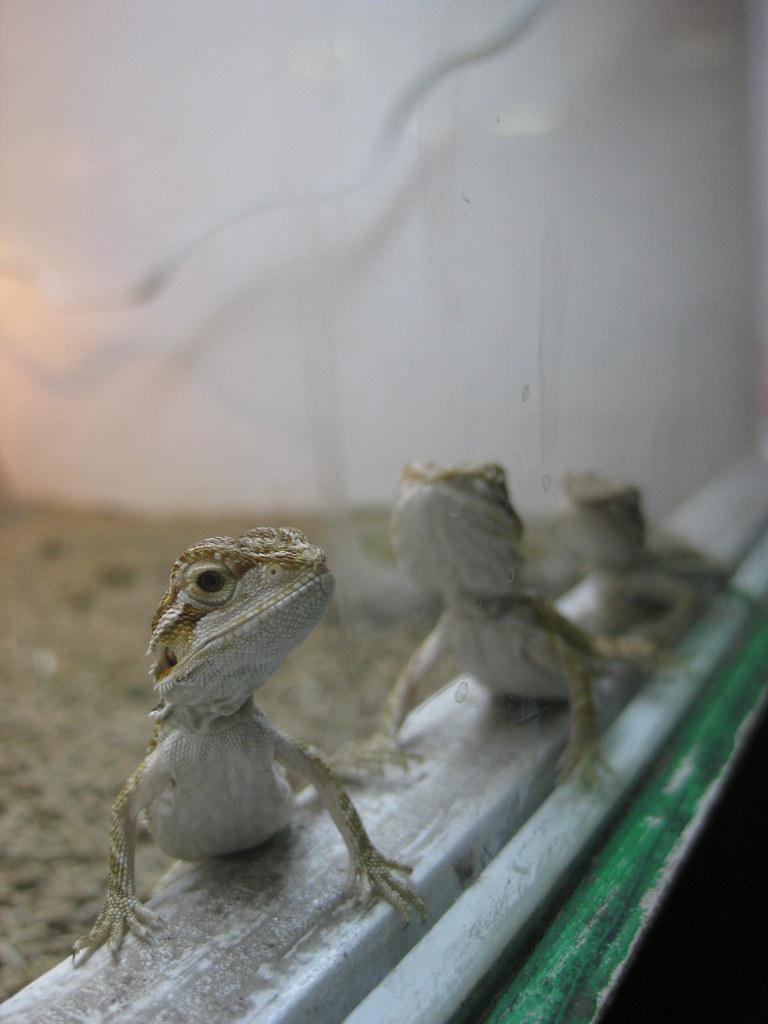Baby bearded dragons are one of the most popular reptile pets in the world. They have become a staple in many households due to their unique personalities and charming appearance. However, as with any pet, it is important to understand what they should eat in order to ensure their health and well-being. Knowing what baby bearded dragons can eat is a key part of being a responsible reptile owner. In this article, we will discuss what baby bearded dragons can eat and how to provide them with a balanced diet.Baby Bearded Dragons can eat a variety of live insects such as crickets, mealworms, waxworms, and other small insects. They should also be offered a variety of dark leafy greens such as collard greens, mustard greens, turnip greens, and dandelion greens. Fruits and vegetables such as peas, sweet potatoes, and bell peppers can also be given to baby bearded dragons occasionally.
Types of Food for Baby Bearded Dragons
Baby bearded dragons have specific dietary requirements. A variety of food items should be included in their diet, including high-protein insects, vegetables, and greens. Insects such as crickets, mealworms, and waxworms should make up the bulk of their diet when they are young. As they grow older, their diet should shift to include more vegetables and greens. Calcium is especially important for baby bearded dragons; it is necessary for proper growth and development. A high-quality calcium supplement should be added to their food once or twice a week.
Insects such as crickets, mealworms, waxworms, and other small insects are an important part of a baby bearded dragon‘s diet. Feed insects that are no larger than the space between the dragon’s eyes; larger ones can be difficult to digest and may cause health problems. Insects should be fed 2-3 times a day in small quantities; any uneaten insects should be removed from the enclosure to prevent them from eating the dragon’s food or defecating in its water dish.
Vegetables and greens are also an important part of a baby bearded dragon’s diet. Dark leafy greens such as kale, collard greens, mustard greens, endive, escarole, romaine lettuce (not iceberg lettuce), turnip greens, beet tops (greens), Swiss chard, and dandelion leaves are all excellent choices. These can be offered daily in small quantities; any uneaten vegetable or green should also be removed after about 15 minutes so it does not spoil in the enclosure. Vegetables such as bell peppers (all colors), carrots (cooked or raw), squash (cooked or raw), green beans (cooked or raw) can also be offered several times a week in small amounts as treats.
Fruits can also occasionally be offered as treats but should not replace vegetables or greens in the daily diet; good choices include apples (cored and diced), mangoes (diced), melons (diced) strawberries (sliced) blueberries (whole) bananas (sliced). All fruits should only be offered in very small amounts due to their sugar content; uneaten fruit should also be removed from the enclosure after about 15 minutes so it does not spoil in the enclosure.
A high-quality calcium supplement should also be added to their food once or twice a week for proper growth and development; this can come in liquid form which can easily be sprayed onto their food before feeding them or powdered form which can simply be sprinkled on top of their food before feeding them. Vitamin supplements are not necessary but can occasionally be offered if needed; vitamins A & D are particularly important for baby beardies since they cannot synthesize these vitamins on their own like adults do.
Vegetables for Baby Bearded Dragons
Baby bearded dragons have unique dietary needs. As they grow, they require more calcium and phosphorus than adult bearded dragons. Additionally, baby bearded dragons require more protein than adults. To meet these dietary needs, it is important to feed them the right vegetables.
The best vegetables to feed baby bearded dragons include dark leafy greens such as collard greens, mustard greens, dandelion greens, turnip greens and kale. These are high in calcium and phosphorus and provide essential vitamins and minerals. Other vegetables that are suitable for baby bearded dragons include bell peppers, squash, carrots, sweet potatoes and tomatoes.
It is important to make sure the vegetables are chopped into appropriate sizes for the baby dragon to eat. Vegetables should be chopped into small pieces so they can be easily digested by the young dragon. Additionally, it is important to thoroughly wash all of the vegetables before feeding them to your dragon.
When feeding your baby dragon vegetables, it is important to remember that variety is key. Feeding the same vegetable every day can lead to digestive issues and nutrient deficiencies due to lack of variety in the diet. It is best to mix up different types of vegetables on a daily basis in order to ensure that your dragon is getting a balanced diet with all of the essential vitamins and minerals they need for optimal health.
Fruits for Baby Bearded Dragons
Providing a healthy, balanced diet for your baby bearded dragon is essential to ensure proper growth and development. Fruits can be an excellent source of vitamins and minerals for your baby bearded dragon. However, it is important to remember that fruits should only make up a small portion of their diet and should not replace the more nutritious vegetables.
When feeding fruits to your baby bearded dragon, it is important to choose those that are safe and nutritious. The following fruits are safe and provide a variety of essential vitamins and minerals:
– Strawberries: Rich in Vitamin C, strawberries are a great source of antioxidants. They can also help boost the immune system.
– Blueberries: High in antioxidants, blueberries are full of Vitamin C and dietary fiber.
– Apples: Apples are rich in vitamins A, B6, C, and K as well as dietary fiber. They also contain potassium which helps maintain healthy electrolyte balance in the body.
– Bananas: Bananas are packed with vitamins B6 and C as well as dietary fiber for digestive health. They also contain potassium which helps regulate blood pressure levels.
– Peaches: Peaches are rich in Vitamin A which helps promote healthy eyesight and skin health. They also contain dietary fiber which aids digestion.
It is important to remember that these fruits should only make up a small portion of your baby bearded dragon’s diet. Too much fruit can lead to weight gain or cause digestive issues such as diarrhea or constipation due to the high sugar content in some fruits. When feeding fruit to your baby bearded dragon, it is best to feed only one type at a time so you can monitor any potential reactions or digestive issues after eating it. Additionally, always remove any uneaten fruit from their enclosure after 24 hours as it can spoil quickly and cause bacteria growth which could be harmful to your pet’s health.
Most importantly, when feeding fruits to your baby bearded dragon be sure to provide variety so they get the full range of vitamins and minerals they need for good health!
Feeding Insects to Baby Bearded Dragons
Feeding insects to baby bearded dragons is an important part of the diet of young dragons. Insects provide an excellent source of nutrition for these reptiles, as they offer a variety of essential vitamins, minerals, and protein. When choosing insects for your baby bearded dragon, it is important to select the appropriate type and size that is safe for your pet.
Insects should be gut-loaded prior to feeding them to your beardie. Gut-loading is a process in which the insect is fed a nutritious diet such as fruits and vegetables before being fed to the dragon. This ensures that the insect is providing the most nutritious meal possible for your pet. It also helps reduce the risk of intestinal parasites or other illnesses that may arise from eating unclean prey items.
When selecting insects for your baby bearded dragon, crickets are usually the best choice. Crickets are readily available in pet stores and can be purchased in sizes that are appropriate for juvenile dragons. Other common feeder insects include mealworms, waxworms, superworms, roaches, and silkworms. It is important to avoid wild-caught insects as they may contain parasites or other contaminants that can make your dragon sick.
It is important to vary the types of feeder insects you offer your baby bearded dragon so they receive a well-rounded diet with different vitamins and minerals. Insects should be dusted with calcium powder every few feedings or calcium blocks can be provided in the enclosure so your dragon can lick it up when necessary. This helps ensure proper bone growth and development and prevents metabolic bone disease in these reptiles.
Overall, feeding insects to baby bearded dragons is an important part of their diet that should not be overlooked when caring for these amazing creatures!

Commercially Available Diets for Baby Bearded Dragons
Bearded dragons are popular reptiles and make great pets. However, they require a special diet to stay healthy. Baby bearded dragons have different dietary needs than adult bearded dragons, so it is important to understand what foods are safe for them to eat. Fortunately, there are several commercially available diets that can provide the nutrition your baby dragon needs.
Insects
Insects should make up the majority of a baby bearded dragon’s diet. Young dragons should be fed insects several times a day in order to meet their nutritional needs. Appropriate insects for baby bearded dragons include crickets, mealworms, waxworms, and other small insects. All insects should be dusted with calcium powder before feeding them to your dragon in order to ensure they get enough calcium in their diet.
Fruits and Vegetables
Fruits and vegetables can also be offered as part of a baby bearded dragon’s diet. A variety of fresh fruits and vegetables can be offered, such as apples, peaches, carrots, squash, sweet potatoes, and greens like collards or mustard greens. These foods should only make up a small portion of the diet and should not exceed 10-20% of the total food intake. It is important to always remove any uneaten fruits or vegetables from the enclosure after feeding time so they do not spoil or become moldy.
Commercial Diets
There are also commercial diets specifically designed for baby bearded dragons that can help round out their diet and provide essential nutrients they may not get enough of from other sources. These diets come in both dry and wet varieties and typically contain fortified vitamins and minerals needed by young dragons to stay healthy. The diets can be offered as an occasional treat or used as a complete meal replacement if desired.
Overall, providing your baby bearded dragon with a proper diet is essential for keeping them healthy and happy! In addition to offering fresh fruits and vegetables, you may also want to consider adding some commercially available diets to their daily routine as well. This will ensure that your baby dragon gets all the nutrition they need without having to rely solely on live insects as their sole source of food.
Feeding Supplements for Baby Bearded Dragons
Feeding supplements are a great way to ensure that your baby bearded dragon is getting enough of the essential vitamins and minerals it needs to stay healthy. However, it can be confusing to know what type of supplement to give your pet and when. This article will discuss the different types of supplements available, how often they should be given, and what benefits they provide.
The most common type of supplement given to baby bearded dragons is a calcium supplement. Calcium is essential for healthy bone growth and development, so it’s important that your pet gets enough of it in their diet. Calcium supplements can be given once per day or twice per week depending on your pet’s needs. It’s important to make sure that you provide the right dosage according to the manufacturer’s instructions as too much calcium can cause health problems such as kidney stones.
Another important supplement for baby bearded dragons is a multivitamin. Multivitamins provide essential vitamins and minerals that help keep your pet’s immune system strong and help them grow properly. The dosage and frequency of multivitamins vary depending on the brand you choose, so it’s important to read the label carefully before giving any supplements to your pet.
Finally, there are several other types of supplements available for baby bearded dragons, such as vitamin A, vitamin E, zinc, magnesium, and selenium. These supplements help maintain optimal health in your pet by providing key nutrients that may not be found in their regular diet. As with all supplements, it’s important to read the label carefully before giving any type of supplement to your pet as some may interact with medications or cause adverse reactions if not taken correctly.
In conclusion, feeding supplements are an essential part of caring for a baby bearded dragon. It’s important to understand what type of supplement you should give your pet and how often in order to ensure they get all the essential vitamins and minerals they need for optimal health and growth.
How Much to Feed a Baby Bearded Dragon?
When it comes to feeding baby bearded dragons, the amount they need to eat depends on their size and age. Baby bearded dragons can be fed crickets, dubia roaches, superworms, waxworms, and other small feeder insects. It is important to make sure the insects are appropriately sized for your baby’s mouth. In general, you should feed your baby dragon 5-10 insects per day. The number of insects they eat will increase as they get older and larger.
It is also important to make sure that your baby dragon is getting enough calcium and vitamins in their diet. This can be done by dusting the feeder insects with a calcium and vitamin supplement before feeding them to your dragon. This will help ensure that your dragon stays healthy and grows properly.
In addition to feeder insects, you can also offer a variety of vegetables for your baby dragon to eat. Leafy greens such as collard greens, mustard greens, turnip greens, and kale are great options for providing them with essential nutrients. You should also offer some fruits such as mangoes or papayas for variety in their diet.
It is important not to overfeed your baby dragon as this can lead to health problems such as obesity or metabolic bone disease. You should also avoid giving them too many treats like waxworms or superworms as these are high in fat content which can be unhealthy for young dragons.
Overall, it is best to consult with a veterinarian if you have any questions about how much food you should be giving your baby bearded dragon on a daily basis. With proper nutrition and care, you can ensure that your little one will grow up healthy and happy!

Conclusion
Bearded dragons are fascinating animals that can be found in many pet stores. Knowing what to feed your baby bearded dragon is essential as improper nutrition can lead to health issues or even death. Baby bearded dragons should be fed a diet consisting of insects, leafy greens and vegetables, and fruits. It is important to ensure that all food items are properly gut-loaded and dusted with calcium before being offered to your pet. As they grow, other items such as waxworms, superworms, roaches, and pinky mice may be added for variety. Providing a healthy diet for your baby bearded dragon will ensure it stays happy and healthy for years to come.
Remember that it is important to research all aspects of caring for a baby bearded dragon before bringing one home. With proper nutrition, care, and love your baby bearded dragon will grow into a healthy adult with the right care.




